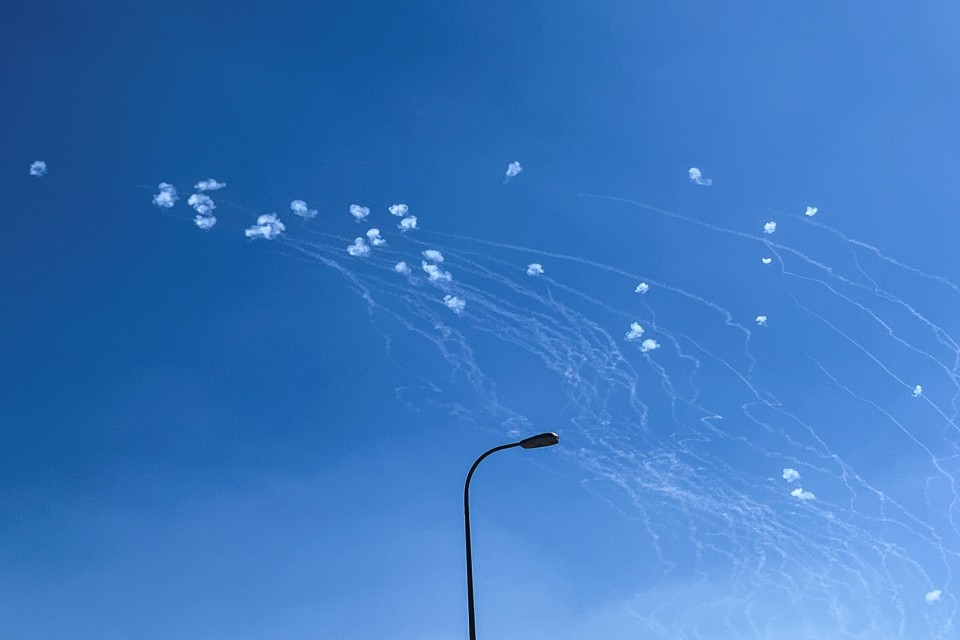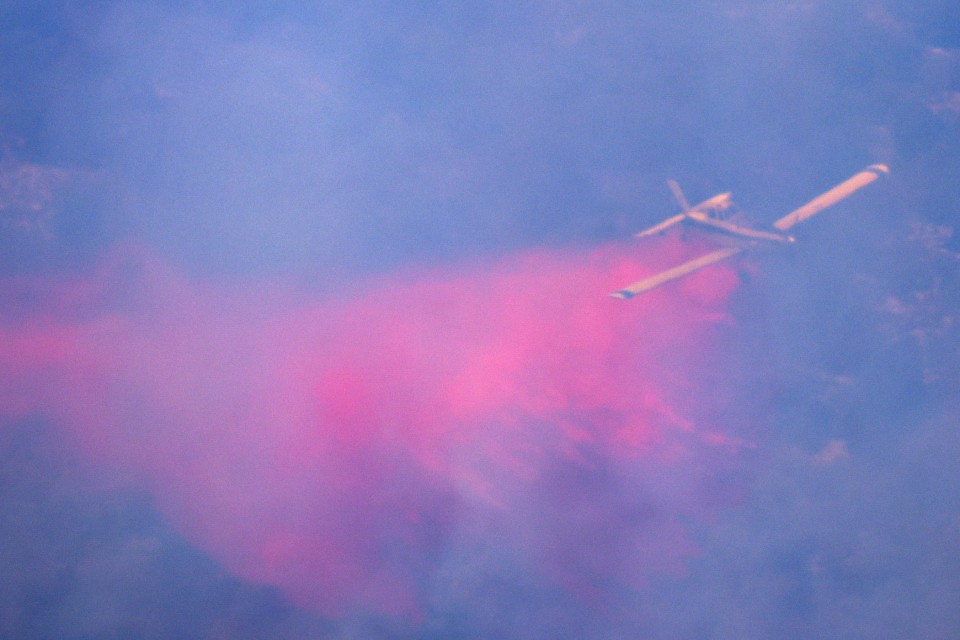

By Maya Gebeily and Ari Rabinovitch
BEIRUT/JERUSALEM (Reuters) -Israel widened its airstrikes in Lebanon on Wednesday and shot down a missile that the armed group Hezbollah said it had fired at the Mossad spy agency near Tel Aviv, ratcheting up the conflict between the two arch-foes.
The Iran-backed Hezbollah claimed to have targeted the Mossad headquarters with what it described as a ballistic missile – the first time in nearly a year of warfare that Tel Aviv, in central Israel, has been so threatened.
World leaders meanwhile expressed concern that the conflict – running in parallel to Israel’s war in Gaza against Hamas – was rapidly intensifying as the death toll in Lebanon rose and thousands of people fled their homes.
U.S. Secretary of State Antony Blinken said Washington and its allies were working tirelessly to avoid a full-blown war between Israel and Hezbollah.
“Risk of escalation in the region is acute..The best answer is diplomacy, and our coordinated efforts are vital to preventing further escalation,” Blinken said at a meeting with Gulf Arab state officials and ministers in New York.
Israeli airstrikes this week have targeted Hezbollah leaders and hit hundreds of sites deep inside Lebanon while the group has fired barrages of rockets into Israel.
Wednesday morning’s Hezbollah strike was the first time since the war broke out last October that one of its missiles had been sighted above Tel Aviv – Israel’s commercial hub and seen as a target with the potential to trigger an escalation in Israeli action.
The head of Israel’s northern command, Major General Ori Gordin, had told troops on Tuesday their country had entered a new phase of its campaign and must be prepared for action, though it was not clear if his remarks were a reference to a possible ground incursion into southern Lebanon.
The Israeli military said on Wednesday it was calling up two additional reserve brigades to the northern border to carry out operational activities.
“This will enable the continuation of combat against the Hezbollah terrorist organization, the defence of the State of Israel, and create the conditions to enable the residents of northern Israel to return to their homes,” it said in a statement.


DEADLIEST DAY
Hundreds of thousands of Lebanese have fled their homes and hospitals have filled with the wounded since an intensification of bombing on Monday, when more than 550 people were killed in Lebanon’s deadliest day since the end of a 1975-1990 civil war.
There was no let up on Wednesday. Israel said its warplanes were carrying out extensive strikes in south Lebanon and the Bekaa Valley, a Hezbollah stronghold further north.
Hezbollah said in a statement it had fired a ballistic missile targeting Mossad headquarters “in support of our steadfast Palestinian people in the Gaza Strip…and in defence of Lebanon and its people”.
Reuters could not independently confirm the type of rocket fired.
Israeli spokesman Nadav Shoshani said he could not confirm what Hezbollah’s target was when it fired the missile from a village in Lebanon.
“The result was a heavy missile, going towards Tel Aviv, towards civilian areas in Tel Aviv. The Mossad headquarters is not in that area,” he said.
Israeli officials said the missile fired at Tel Aviv was shot down with a David’s Sling missile, a surface-to-air missile designed to destroy tactical ballistic missiles at low altitude.
White House national security spokesperson John Kirby said the United States was deeply concerned by the reports of a rocket attack aimed at Mossad, but it still believed a diplomatic solution could be found to ease the violence.
Hezbollah blamed Mossad for assassinations of its leaders.
It has also accused the spy agency of carrying out an operation last week in which booby-trapped pagers and radios of Hezbollah members exploded, killing 39 people and wounding nearly 3,000. Israel has neither confirmed nor denied involvement.
At least 51 people were killed and at least 223 wounded in Israeli strikes across Lebanon on Wednesday at five different locations, the Lebanese health minister said.
EXPANDED TARGETS
Israel has expanded the zones it has been striking since Tuesday night, with attacks for the first time on the beach resort town of Jiyyeh just south of Beirut and Maaysrah.
The strikes also took place in Bint Jbeil, Tebnin and Ain Qana in the south, the village of Joun in the Chouf district near the southern city of Sidon, and Maaysrah in northern Keserwan district.
As many as half a million people may have been displaced in Lebanon, its foreign minister said. In Beirut, thousands of displaced people who fled from southern Lebanon were sheltering in schools and other buildings.
More than 60 people were evacuated by the Lebanese Army early on Wednesday from the Christian town of Alma Chaab, along the border with Israel, following strikes overnight.
“At least two houses were completely destroyed but thankfully they were empty and we had no deaths,” said Milad Eid, a resident.
Israeli authorities said the Galilee region of northern Israel was hit by heavy Hezbollah barrages on Wednesday morning.
In the Israeli town of Safed, an assisted living facility was hit but no injuries were reported, the authorities said.
SOLIDARITY WITH HAMAS
Near-daily exchanges of fire in the Israel-Lebanon border area started after war broke out last October between Israel and the Palestinian militant group Hamas in the Gaza Strip on Israel’s southern border, with Hezbollah saying it was acting in solidarity with its ally Hamas.
Tens of thousands of Israelis have been evacuated from their homes near the border, and the government has made their safe return an aim of the war, setting the stage for a long conflict. Hezbollah has said it will not back down until the Gaza war ends.
(Reporting by Jana Choukeir and Clauda Tanios in Dubai and Joshua McElwee in Vatican City, Kate Holton, Catarina Demony in London, and Urvi Dugar and Humeyra Pamuk in Washington;Writing by Michael Georgy, Editing by Angus MacSwan and Peter Graff)
